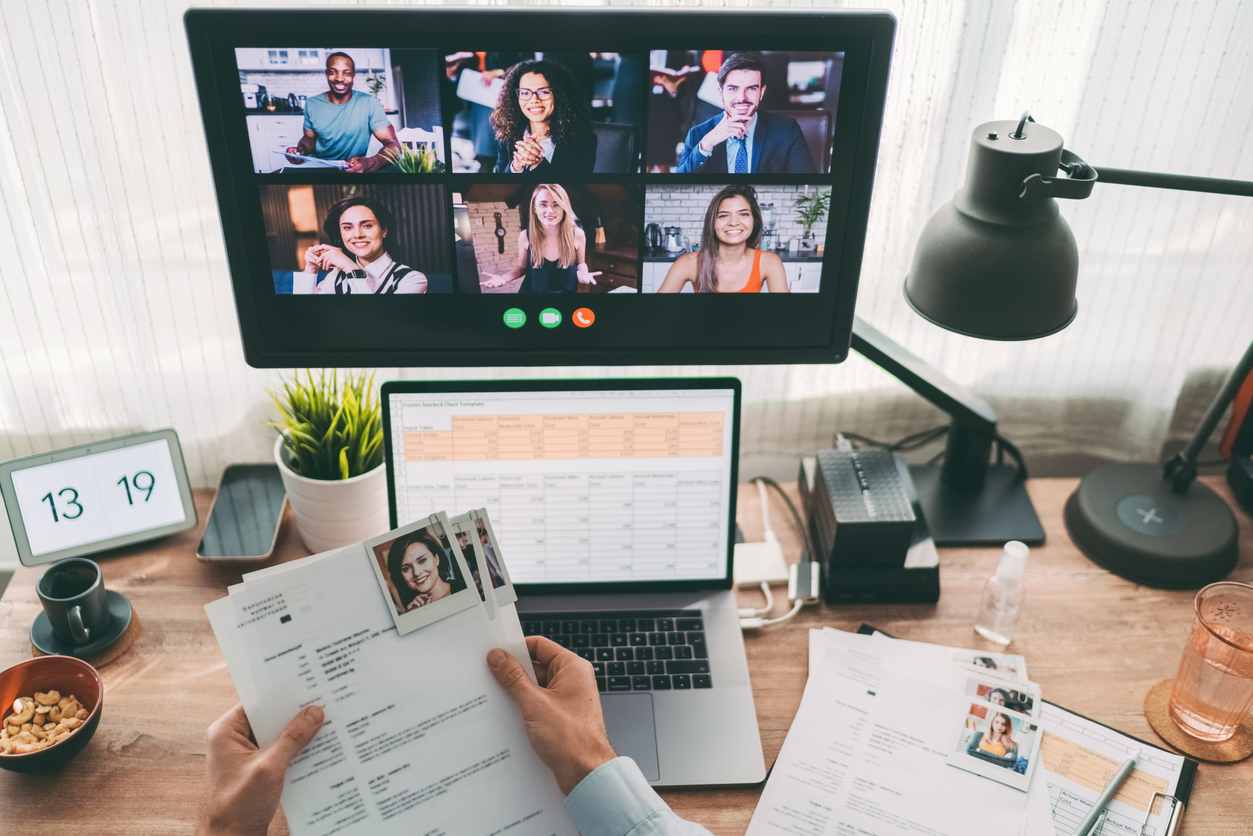Hiring has never been more complex or more competitive. Technical and leadership roles in particular demand precision: the right skills, the right cultural fit, the right potential for growth. Yet traditional hiring methods often lean too heavily on generic interview questions or “going with your gut.” This is where incorporating AI in Recruitment enters the picture.
By integrating artificial intelligence into the hiring process, organizations are creating more targeted, role-specific interviews and assessments that improve efficiency, fairness, and candidate fit. At The Doyle Group, we believe that when deployed properly, AI can enhance rather than replace the human touch. The key is to exercise intentional oversight of AI tools and processes—oversight that will drive the desired results.
Why Should You Use AI in Recruitment?
Perhaps a few hiring managers have asked that question at some point. However, the numbers provide a clear answer:
- 99% of hiring managers now use AI in some capacity to drive efficiency and accuracy in recruitment.
- 82% of firms use AI to review resumes, while 40% employ AI chatbots to communicate with candidates.
- AI can improve diversity and fit by up to 30% compared to traditional methods through predictive analytics.
In short, AI isn’t a passing trend. It’s becoming the foundation of modern hiring strategies. For companies struggling with slow processes, weak candidate pipelines, or inconsistent interview outcomes, AI offers a path to measurable improvement.
Benefits of Role-Specific AI Hiring Assessments
The promise of AI isn’t just efficiency—it’s relevance. Role-specific assessments transform interviews from broad, boilerplate Q&A sessions into tailored, insightful conversations. Here are just a few ways this occurs:
Create a Tailored and Engaging Candidate Recruitment Experience
Instead of asking generic “strengths and weaknesses” questions, AI recruitment platforms can generate interview content aligned with the role’s actual requirements. For example:
- Scenario-based strategy challenges for a Product Manager
- Code challenges in Angular + AWS for a Software Engineer
- Behavioral simulations designed for people leaders navigating conflict or organizational change
When you use AI in recruitment, candidates feel their time is respected when assessments mirror real-world responsibilities.
Dynamic and Adaptive Assessments
AI hiring tools can adjust in real time based on candidate responses. If an engineer nails an entry-level coding challenge, the system may surface a more complex algorithmic problem to truly test their depth. This adaptive quality helps hiring managers get beyond surface-level impressions.
Bias Reduction
Standardized question sets and assessment frameworks help reduce unconscious bias. While no system is bias-free, using AI in recruitment can provide more consistent evaluation baselines.
Recruiter Efficiency
By automating repetitive hiring tasks (screening resumes, generating questions, scoring responses), AI recruitment tools free recruiters to focus on higher-value work, such as relationship-building and strategic workforce planning.
How Companies Are Applying AI in Recruitment Today
AI in hiring isn’t theoretical. In fact, it’s already being widely practiced across several industries. For technical assessments, platforms use AI to generate and evaluate coding challenges, benchmarking candidates against global standards. In the area of behavioral interviews, AI recruiting tools now leverage natural language processing to analyze how candidates respond to situational questions, offering insights into traits like adaptability and communication style.
Hiring assessments have also expanded to include personality and cognitive fit, incorporating psychometric and problem-solving tasks that AI can evaluate for alignment with role expectations and team dynamics. Taken together, these tools provide a holistic view of the candidate that goes well beyond resumes or one-dimensional interviews.
Risks and Limitations To Watch For When Using AI in the Hiring Process
Despite the many benefits, companies must tread carefully when adopting AI in hiring. Overreliance on automated systems or poor implementation can create significant challenges. One of the biggest concerns is candidate trust—only 26% of candidates currently believe in AI-driven hiring decisions, according to one study. For this reason, transparency is crucial. Organizations need to be clear about how AI is being used during the recruiting process and where human decision-makers remain in control.
Another risk lies in the need for human oversight and judgment, which still plays a vital role in the hiring process. While AI can provide efficiency and data-driven insights, results must always be validated and contextualized by people who understand the specific role, company culture, and broader business goals.
Finally, ethical considerations cannot be ignored. AI is only as unbiased as the data it is trained on, which means unintended bias can easily creep into assessments. Companies should regularly audit their tools and ensure they align with diversity, equity, and inclusion objectives. Without this kind of oversight, organizations risk alienating candidates, harming their employer brand, or even facing legal consequences.
Trends in AI-Based Hiring
The evolution of AI in recruitment is still in its early stages, and new applications are quickly emerging. One area gaining momentum is the use of generative AI to build complete interview frameworks directly from role specifications. These frameworks can seamlessly integrate technical, behavioral, and cultural dimensions, helping companies design more thorough and consistent hiring processes in a fraction of the time.
Another promising development is the rise of predictive analytics. By drawing on historical hiring data, AI systems can more accurately match candidates to roles and improve alignment with team needs. This allows organizations to identify not only who can do the job but also who is most likely to succeed and thrive within a specific environment.
As adoption grows, there is also a stronger push for ethics and transparency. Organizations will need to communicate clearly about how AI is being used in hiring decisions, both to build trust with candidates and to meet evolving regulatory expectations. Looking ahead, AI should not be seen as a replacement for recruiters, but as a powerful tool that amplifies their impact and enables them to focus on what humans do best—bringing insight, empathy, and judgment to the hiring process.
How The Doyle Group Helps Clients Adopt AI Thoughtfully
AI is not a silver bullet. It’s a powerful tool, but one that must be deployed with prudence and intentionality.
At The Doyle Group, we focus on connecting organizations with expert AI specialists and consultants who can help shape a thoughtful strategy. Alongside that, we emphasize our own balanced process—where AI may play a role in supporting efficiency, but the insights of our recruiters ensure cultural alignment and uncover qualifications that may not appear on a résumé. In practice, this means:
1. Expert Connections
We introduce clients to proven AI hiring specialists and consultants who can guide them in building out a strategy tailored to their needs, industry, and organizational goals.
2. Balanced Recruiting Process
We may use AI in select stages of recruiting to streamline tasks, but always in tandem with human judgment. This balance ensures not just technical accuracy, but also cultural fit and deeper contextual insight.
3. Role-Specific Tools
We help clients create structured, role-specific interviews and scoring rubrics, avoiding generic frameworks that miss what truly defines success in a given position.
4. Strategic Guidance
Our role is to help companies weave AI-enabled processes into a larger talent strategy—always anchored in fairness, human-centered oversight, and long-term workforce success.
As Ashley Wright, Marketing Manager at The Doyle Group, puts it:
“AI is a game-changer in hiring—but only when used with purpose. The real magic happens when companies pair AI’s speed and scale with the empathy, intuition, and insight of great recruiters.”
Reach out to our team at The Doyle Group today to learn more about how we can help you design AI-powered interviews and assessments that keep human connection at the core.






